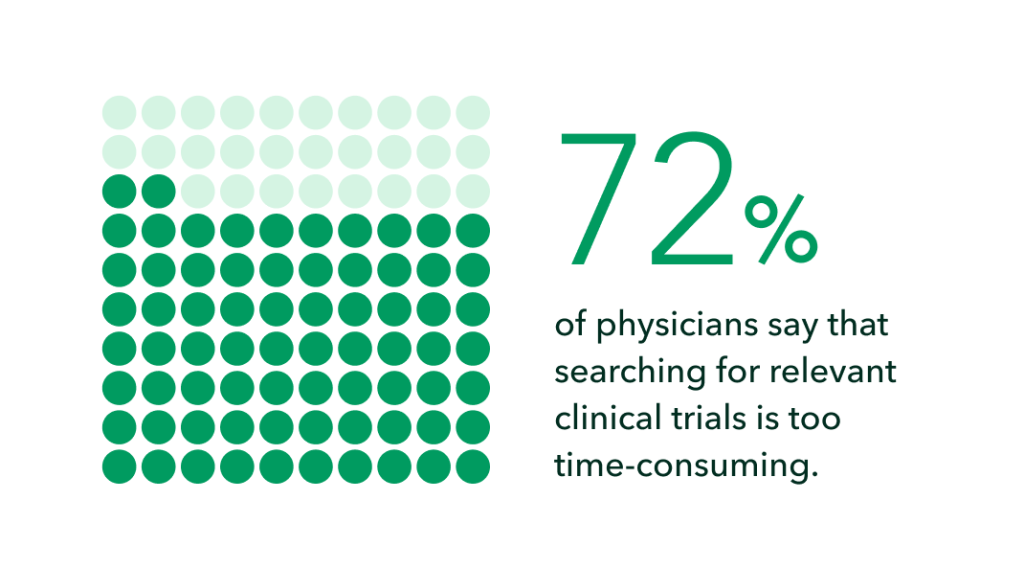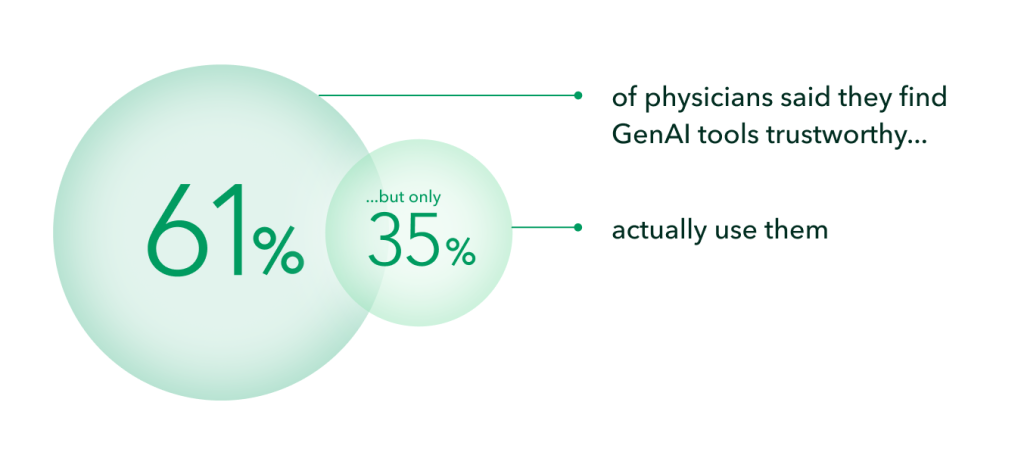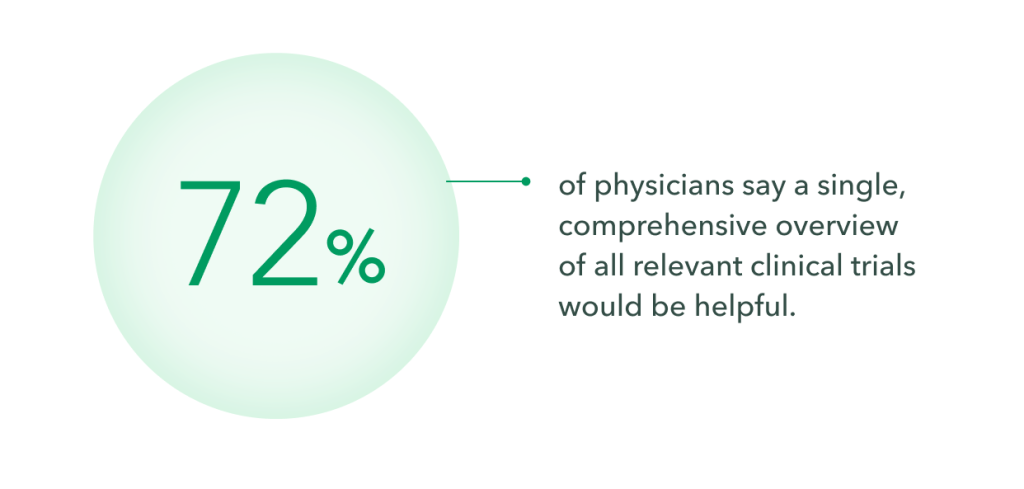Every day, physicians around the world make decisions that can profoundly impact patients’ lives. For patients dealing with serious or life-limiting conditions who have exhausted the standard of care, knowing about relevant clinical trials can help them open up new possibilities. Yet, despite more than 500,000 registered clinical trials globally and over 8,000 drugs in development, many studies still struggle to meet enrollment targets because patients and physicians are often unaware of relevant options.
Why? Because the process of finding and referring patients to clinical trials remains unnecessarily complex. At myTomorrows, we wanted to understand exactly where these challenges begin and how technology can help solve them. So, to delve into this topic further, we conducted our new survey of 100 U.S. physicians who have searched for trials in the past 12 months. We summarized our findings in our new report: Searching for solutions – How physicians navigate trial access and technology.
In this blog, I’d like to share what we learned and why these insights matter for the future of patient care.

Our survey revealed that 72% of physicians find searching for relevant clinical trials too time-consuming, and 61% say identifying and accessing appropriate trials is difficult or very difficult. For physicians already managing demanding caseloads, the burden of manual searches, fragmented systems, and complex eligibility criteria often feels insurmountable.
This is more than an administrative inconvenience. For patients with limited treatment options, delays in identifying relevant clinical trials can limit opportunities to consider investigational therapies as part of their care planning.

Physicians are doing their best to keep up. Nearly 90% report using search engines like Google, while others rely on specialist trial search platforms or emerging generative AI tools like ChatGPT. Encouragingly, 35% of physicians already use generative AI for trial discovery, and 61% trust these tools to deliver reliable information.
But trust alone isn’t enough. Many physicians shared that unfamiliarity, lack of training, and concerns about data privacy hold them back from fully embracing AI in their workflow. A fragmented landscape of partial solutions leaves them spending precious hours toggling between multiple platforms, sometimes using several tools just to make a single referral.

When we asked physicians what would help, their answers were clear. 72% want a single, comprehensive overview of all relevant clinical trials. They also see value in:
Above all, physicians expressed a desire for solutions that are integrated, trusted, and easy to use.
Generative AI has shown the potential to significantly streamline trial discovery. Physicians, using these tools, cite time saved and easier access to up-to-date information as major benefits. But for AI to become a trusted partner in clinical settings, healthcare systems need to invest in:
Building this trust is essential. As AI evolves, it has the potential to relieve the burdens physicians face, enabling them to focus on caring for patients.
At myTomorrows, we believe in breaking down barriers by proactively providing smart solutions which connect all stakeholders in the clinical trial ecosystem. Our AI-powered search platform gives physicians a comprehensive overview of available trials based on their patient’s unique profile. It pre-screens eligibility criteria to support accurate and reliable trial matching. Furthermore, physicians can communicate directly with trial sites on-platform, able to make referrals quickly and efficiently without the need for multiple different tools. For situations where clinical trial participation isn’t an option, physicians can also make expanded access requests via our platform. Our expert teams will offer hand-on support with every step of the request.
Over the years, helped more than 16,200 patients and 2,600 physicians access treatments. But there is much more work to do, and we are committed to being part of the long-term solution.
About the author
CEO of myTomorrows
Michel van Harten is the CEO of myTomorrows, where he leads the company’s mission to transform access to treatments for patients with unmet medical needs. He holds a BSc in Economics and a Medical Degree from the University of Amsterdam and began his career as a physician at the Antoni van Leeuwenhoek Hospital, specializing in surgical oncology. With over 15 years of experience in healthcare, Michel combines clinical insight with business acumen to drive innovation and improve patient care. Under his leadership, myTomorrows is advancing more connected, patient-centered approaches to treatment access.
Michel van Harten 17 Jul 2025